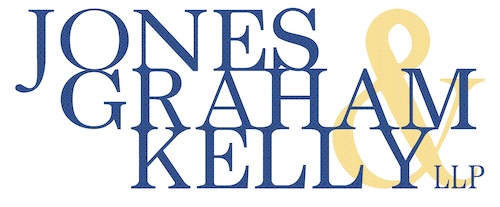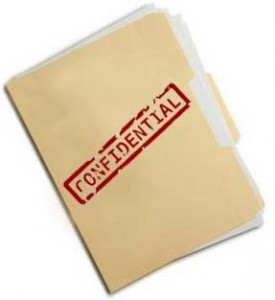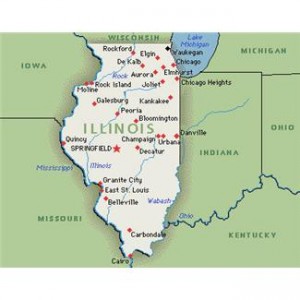by Christopher Graham and Joseph Kelly

Introduction: We read lots of cases about professional liability and D&O insurance. We’ve handled quite a few of them as well. Many involve policyholders losing coverage because they fail to take a simple step–namely, promptly tell their insurer about a claim or circumstance that may lead to a claim. Sometimes, as in the case discussed today, the problem arises when switching insurers, when the policyholder doesn’t report a circumstance to it’s existing insurer and fails to disclose it in an application to a new insurer.
The policyholder, as in today’s post, also may lose coverage under “prior knowledge” wording, by having a “reasonable basis to believe” that someone would bring a claim. Although there’s some conflicting decisions, the issue most often is determined based on what an objectively reasonable person would have concluded based on the facts then known, rather than what the policyholder says was its belief.
With the consequences potentially being severe, why do so many policyholders fail to report? Do they forget about their policy? Do they fail to read them? Do their brokers fail to educate them? Do they really believe a claim or circumstance is no big deal? Are they in a state of denial–hoping a circumstance will blow over and won’t result in a claim, that a claim will be dropped, that they can fix things, or that they can resolve the matter for small dollars on their own?
Some policyholders especially should know better. We had one post not long ago here where even an insurer failed to report! And today’s post is about a law firm.
Whatever the reason, failing to report can cost a policyholder big bucks. There’s really not a lot to lose by reporting. And potentially huge consequences when you don’t, as you’ll see in today’s post. Moral of the story: regardless of whether you think the matter is no big deal, report it to your insurer promptly!
One more point covered in this post: at the very end, we address the lawyers’ argument that insurer waited too long to reserve rights on a “prior knowledge” defense, another issue frequently arising in coverage litigation, usually argued as waiver and estoppel. Here the court rejected the argument, but only after deciding DC law controlled so a fairly unique Virginia statute requiring an insurer to notify a “claimant” and its counsel of the insured’s breach was inapplicable. For claims people, take heed of that statute for Virginia claims. Your duty under a liability insurance policy may be to communicate about coverage with a claimant and its counsel as well as the insured.
The story: Larry Lawyer handles medical malpractice cases. One day in 2004 a Mom and Dad ask the firm to consider bringing a medical malpractice case for their Minor Daughter. After having surgery to correct scoliosis, she became a quadriplegic. Very tragic.
Larry practices in DC. But he’ll have to sue for malpractice in Virginia. He has an associate, Lucy Lawyer, a Virginia Bar Member, who will help.
Larry’s firm files the malpractice complaint in July 2006, four days before the limitations period expires. Although required under Virginia law, the complaint doesn’t name Mom and Dad as “next friend” parties suing for Minor Daughter. That omission will become a very big problem.
Nearly three months later, in October 2006, Larry’s firm files a new complaint naming Mom and Dad as next friends. But that’s after the limitations period has expired.
About four months later, in February 2007, the court dismisses the first complaint because it didn’t include Mom and Dad as Minor’s next friends.
About four months thereafter, in June 2007, the court dismisses the newer complaint, including Mom and Dad as next friends, as too late. It’s barred by the statute of limitations. Larry’s law firm meanwhile is about a month away from renewing its professional liability insurance policy.
The firm on July 18, 2007 applies to Amy Underwriter’s company, which would be a new insurer for the firm. As typical, Amy’s application asks Larry’s firm to disclose what problems may be brewing. Although Larry knows the court dismissed Minor Daughter’s medical malpractice claims as untimely, Larry answers “no” to the following application question:
Having inquired of all partners, officers, owners and employed lawyers, are there any circumstances which may result in a claim being made against the firm, its predecessors or any current or past partner, officer, owner or the employed lawyer of the firm?
And neither Larry, nor anyone else reports the dismissal to the firm’s existing professional liability insurer as a circumstance that may result in a claim. See where this is going? Big hint: Nowhere good for Larry or his firm!
So with the application looking clean, Amy Underwriter binds coverage for Larry’s firm effective July 24, 2007 to July 24, 2008.
Ten days after the effective date, the court issues it’s order memorializing its June decision dismissing Mom and Dad’s next friend complaint as time-barred. Larry’s firm appeals.
Larry’s Firm gets through the whole policy year without Minor Daughter suing. The appeal of the dismissal of the malpractice claim is still pending. Larry’s firm still hasn’t reported a circumstance to Amy. Amy Underwriter meanwhile renews the policy for another year, effective July 24, 2008.
As is typical for professional liability policies, the insuring agreement conditions coverage on the absence of prior knowledge of a potential claim. Here’s the wording:
The Company will pay on behalf of the Insured all sums which the Insured shall become legally obligated to pay as Damages for Claims first made against the Insured and reported to the Company during the Policy Period or Extended Reporting period, as applicable, arising out of any negligent act, error, omission or Personal Injury in the rendering of or failure to render Professional Services for others by an Insured covered under this policy. Provided that such Professional Services or Personal Injury happen:
A. during the Policy Period; or
B. prior to the Policy Period provided that prior to the effective date of the first Lawyers Professional Liability Insurance Policy issued by this Company to the Named Insured or Predecessor in Business, and continuously renewed and maintained in effect to the inception of this policy period:
…
2.. The Named Insured, any partner, shareholder, employee, or where appropriate the Named Insured’s management committee or any member thereof, had no reasonable basis to believe that the Insured had breached a professional duty or to Reasonably Foresee that a Claim would be made against the Insured…
“Reasonably Foresee” was defined as, among other things: “incidents or circumstances that involve a particular person or entity which an Insured knew might result in a Claim or suit prior to the effective date of the first policy issued by the Company to the Named Insured, and which was not disclosed to the Company.”
Larry’s Firm in May 2009 non-suited Mom and Dad’s remaining claims not dismissed earlier.
With the policy expiring July 24, 2009, Larry’s firm finally reports Minor Daughter’s potential claim to Amy’s company. Connie Claims by letter generally reserves rights and appoints defense counsel to investigate. This is over two years after dismissal of Minor Daughter’s medical malpractice suit as untimely. Larry later will claim he never received the letter.
The Virginia Supreme Court in December 2009 finally disposes of Minor Daughter’s claims as untimely. Mom and Dad then retain new counsel who in January 2011 tells Larry’s firm he’s taking over.
A year later, there’s still no suit against Larry’s firm or any of it’s lawyers. So good news for everyone. But the bad news: there’s still time for Minor Child to sue.
About this time, January 2012, Connie Claims supplements her general reservation of rights letter to Larry’s firm, stating her company “reserves its rights to deny coverage for [a potential legal malpractice suit] to the extent that an insured had a reasonable basis to believe that a professional duty had been breached or to ‘reasonably foresee’ that a ‘claim’ would be made against the insured before [the firm’s] policy incepted on July 24, 2007.”
Then two months later, it finally happens: Minor Daughter, no longer a minor, sues Larry’s firm and the lawyers for legal malpractice in allegedly blowing the limitations period for daughter’s medical malpractice claim. Connie’s company defends them, subject to a reservation of rights.
But it also sues the lawyers for a declaration that there’s no duty to defend or coverage otherwise, joining Minor Child as a party. So the lawyers now have two big problems: Minor daughter’s legal malpractice suit and coverage litigation they have to pay to defend and which may mean they have no insurance for Minor Daughter’s serious legal malpractice suit.
Connie’s company claims the firm and lawyers had a “reasonable basis to believe” or to “Reasonably Foresee” that Minor Daughter would bring a claim as early as February 2007, when the court dismissed the first malpractice complaint for failing to include Mom and Dad, and no later than June 2007, when the court dismissed the second complaint, including Mom and Dad, as time-barred.
Larry’s firm argues that there was no reason to believe they breached a professional duty regarding Minor Child because the error leading to dismissal was merely a “misnomer;” they also couldn’t reasonably have foreseen Minor Child’s malpractice claim before Connie’s company’s policy inception on July 24, 2007.
Then more bad news: a jury awards Minor Child $4 million on her malpractice claims against the lawyers. The court reduces the award to $1.75 million. But if Connie’s company wins and the judgment stands, Larry’s firm will be stuck paying Minor Child.
The prior knowledge decision: In Chicago Insurance Co. v. Paulson & Nace, PLLC, et al, Case No. 12-2068 (ABJ) (D. D.C. April 10, 2014), a case generally along these lines, a court granted a summary judgment for the insurer on a prior knowledge defense and against the lawyers and Minor Child.
The court found that the lawyers “had a reasonable basis to believe that they had breached a professional duty to [Minor Defendant] no later than the date of the Virginia court’s ruling on June 18, 2007 . . . [,when the court dismissed the second complaint.]” It explained that resolving the issue “is an objective inquiry that asks what a reasonable attorney would have done in the same circumstances.”
Then it went on:
[T]he [lawyers] filed a medical malpractice complaint on behalf of [Minor Child] in 2006 that did not comport with the Virginia Code requirement that a minor must sue by a “next friend.” . . . The statute of limitations on [Minor Child’s] claim expired before the attorney defendants were able to correct their mistake, and thus their error became fatal to [Minor Child’s] claims.
Further: “The [lawyers’] efforts to minimize the seriousness of their naming mistake are unavailing: not only did this last-minute ‘misnomer’ cost [Minor Child] the right to bring her medical malpractice claim in court, but also it led a Virginia jury to find the [lawyers] liable for legal malpractice.”
The court’s decision was based on wording providing that the Named Insured and certain related parties had “no reasonable basis to believe that the Insured had breached a professional duty . . . .” It was not based on the phrase, “Reasonably Foresee that a Claim would be made against the Insured.” The court explained that “whether the [lawyers] ‘reasonably foresaw’ [Minor Child’s] claim appears to be a subjective inquiry, as it looks to ‘incidents or circumstances … which an Insured knew might result in a Claim or suit.'” “But because the policy is worded in the alternative, requiring that an insured have ‘no reasonable basis to believe that [it] had breached a professional duty or to Reasonably Foresee’ a future claim, . . . , what the [lawyers] subjectively knew at the inception of the [policy] does not control when, objectively, they should have recognized the professional error.”
The court also rejected lawyers’ argument that insurer couldn’t win without expert testimony, explaining “this question is not ‘so distinctly related to some science, profession, or occupation as to be beyond the ken of the average layperson,” which is when expert testimony is a must under DC law.
The waiver and estoppel decision: The court initially decided that it didn’t need to address whether the insurer lost the ability to raise its prior knowledge defense for failing to comply with a “requirement under Virginia law that, when a liability insurer ‘discovers a breach of the terms or conditions of the insurance contract by the insured, the insurer shall notify the claimant or the claimant’s counsel of the breach … within forty-five days’ of either the insurer’s discovery of the breach or of the claimant’s claim. Va. Code § 38.2-2226 (2013).” DC rather than Virginia law applied in part because that’s where the law firm was located and policy issued. This statute isn’t what’s typically found in the various states. So claims people, beware if you have liability claims in Virginia.
The court then rejected the lawyers’ argument that the insurer waived or was estopped from raising the prior knowledge defense because of appointing counsel for the lawyers without specifically raising the prior knowledge defense earlier. According to the court: “It is undisputed that [insurer] could have discovered the facts underlying its ‘prior knowledge’ defense in March of 2010 [(just after the Virginia Supreme Court affirmed dismissal of Minor Child’s medical malpractice claims)], but it did not do so until November 2011 . . . , and did not reserve its rights with respect to that defense until January 13, 2012.”
“But D.C. law required [insurer] to reserve its rights before ‘undertaking the defense’ of the [lawyers] ‘against a litigious assertion of an unprotected liability.'” And “Given that [Minor Child] did not file her legal malpractice claim until March 13, 2012, exactly three months after [insurer] reserved its ‘prior knowledge’ defense, the timing of [insurer’s] reservation of rights notice met this requirement of D.C. law.”
The court also rejected applying waiver and estoppel because it found the lawyers’ suffered no prejudice from the delay in the insurer raising “prior knowledge.” According to the court:
[T]he twenty-two months that elapsed between the earliest date on which [insurer] could have become aware of its prior knowledge defense (March 8, 2010) and the date on which it issued its reservation of rights (January 13, 2012) did not prejudice [lawyers] because [insurer] had taken no actions that “hampered or harmed” the [lawyers’] “ability to defend [themselves].”
The court found no evidence supporting lawyers’ argument that they could have notified their prior insurer had this insurer raise “prior knowledge” sooner.
Conclusion: This was a terrible result for the lawyers. Big judgment. No coverage. No matter what they may have thought when the court dismissed Minor Child’s malpractice suit, they should have reported a circumstance or potential claim to their existing carrier before the policy term ended and switching carriers. Then when claim later arose, that insurer presumably would have stepped up. They also should have disclosed the reported circumstance to their new insurer in applying for coverage. Even if you think a court got it wrong or you can fix things, report. Otherwise you may wind up like these policyholders. You pay a good premium to make sure you have protection. Do what you need to do to assure it responds when you need it.
Tags: District of Columbia, professional liability, legal malpractice, lawyers malpractice, prior knowledge, notice of circumstance, notice of potential claim, “no reasonable basis to believe,” objective standard, subjective standard, waiver, estoppel






